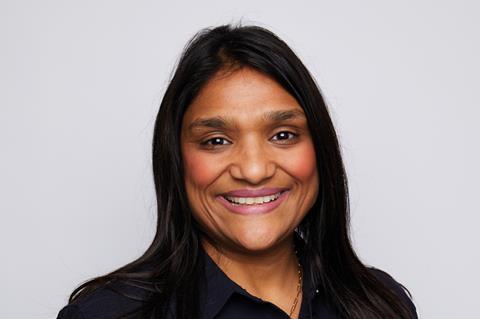Head of the family and divorce team, London
My interest in law started at a young age – at school in fact, when I undertook a project on the issue of euthanasia. I was intrigued by the arguments on both sides and how there is no clear answer on a tricky social issue. And then there was LA Law – women with shoulder pads arguing in court sealed the deal for me.

I studied Law at the University of Manchester – a great city to be young and carefree in the 1990s. Following three years of partying, I knew it was time to knuckle down. I applied to numerous law firms for a training contract, including Kingsley Napley, which rejected me without an interview. Now I am heading up their family and divorce team. I always remind my eight-year-old daughter of the importance of perseverance. I learnt early on that failure is part of the journey and without it you cannot find success. My rejection from Kingsley Napley allowed me to train and develop at other firms. This in turn has enabled me to bring my experiences to the team – taking the bits that work and leaving behind the parts that don’t.
I wanted to specialise in an area of law which touched the lives of individuals. I enrolled on a Master of Laws following my LLB. A module on international family law demonstrated what a complicated area of law it is. Each case is never the same and there is considerable crossover into other specialisms, which makes it all the more interesting and challenging. I started my training at Anthony Gold in London shortly after the landmark decision of White v White [2000]. The House of Lords examined the law on the division of assets on divorce and concluded ‘there should be no bias in favour of the money-earner and against the home-maker and the child-carer’, and emphasised the need to ensure the absence of discrimination. This case was a game-changer, for women in particular.
The effects of the recent change in divorce law allowing spouses to divorce without attributing blame are still becoming clear. There was certainly an increase in the number of divorces. This is because many couples were waiting for the new law before proceeding. The reasons for the breakdown of a marriage are complicated. Most married couples accept this and understand the importance of an amicable divorce, especially for the sake of the children. I am now spending less time discussing the divorce process with clients. This has a direct impact on their fees, the stress, and allows the parties to concentrate on complicated issues such as the division of assets or arrangements concerning children.
In the past 10 years, I have seen a significant growth in the use of pre- and post-nuptial agreements. This is partly driven by greater public awareness following the Supreme Court decision in Radmacher, but also by an increase in second marriages, where individuals are keen to protect their children’s inheritance. The great wealth transfer has also played a part, with parents insisting on pre-nuptial agreements before gifting large sums of money to their children. Take-up seems to have accelerated recently, but it is always essential to explain that these tools are not yet legally binding in England and Wales. It is surprising how many clients come to us not realising that.
I have been a member of Resolution’s cohabitation committee for over 15 years. I decided to join the committee as I felt passionately about the injustice of the current law.
It is an incredibly active committee whose mandate is to raise awareness on the lack of protection for cohabiting couples and to campaign for reform. Given that more than half of all children are now born to couples who are unmarried or not in a civil partnership, and that cohabitants are the fastest-growing family type in the UK, the committee’s work is increasingly important. The committee sponsored the late Lord Lester’s private member’s bill which included providing input on the drafting of the cohabitation legislation as well as responding to numerous Law Commission consultations over the years. We will keep campaigning until reform in this area becomes a reality. I intend to stay involved despite my new responsibilities at Kingsley Napley.































No comments yet